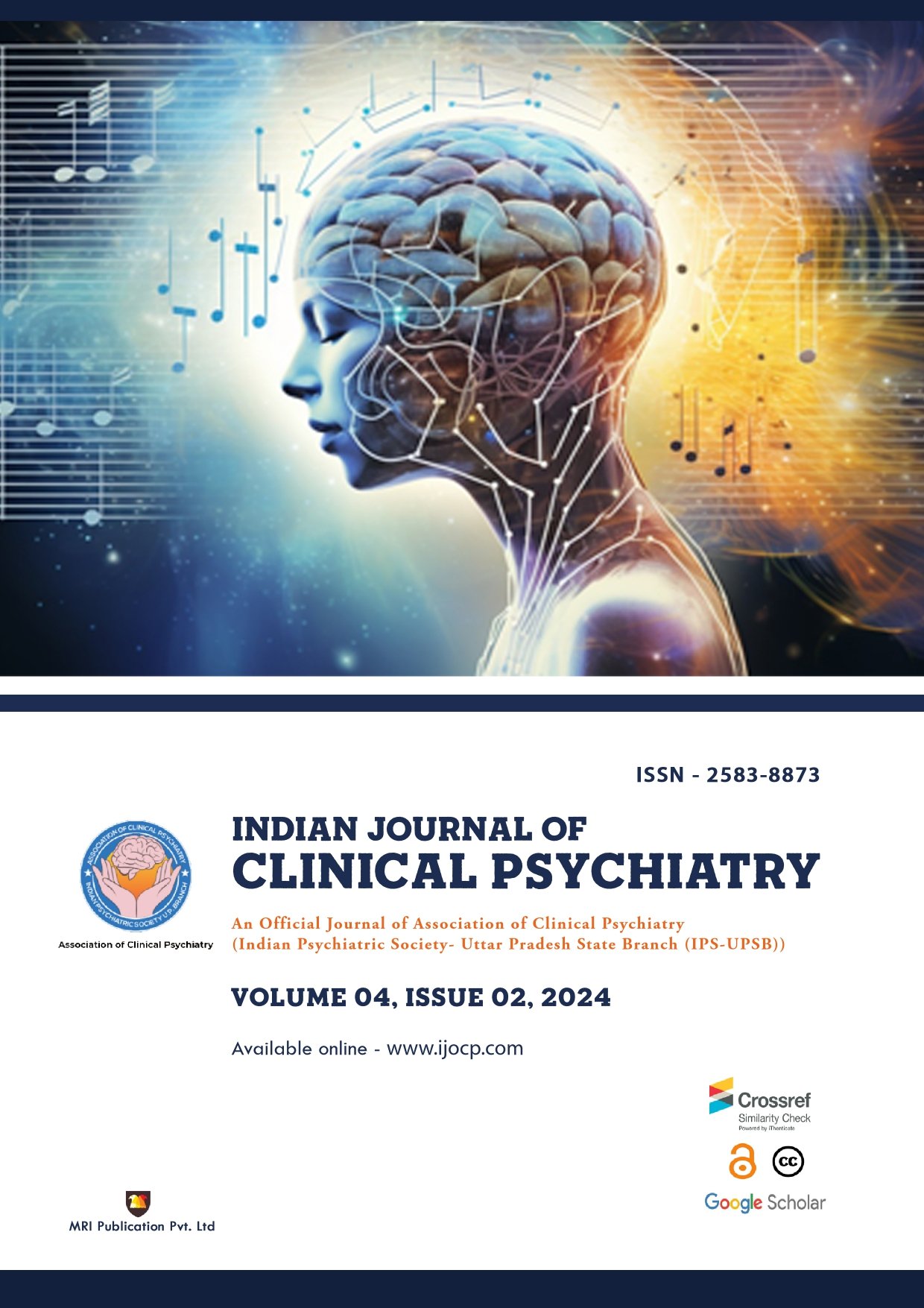Existential Concerns and Interventions in Patients with Cancer: Insights from Yalom’s Framework
Downloads
Published
DOI:
https://doi.org/10.54169/ijocp.v4i02.142Keywords:
Existential distress, Meaning-based psychotherapy, Cancer patients, Existential psychotherapy, I.D. YalomDimensions Badge
Issue
Section
License
Copyright (c) 2024 Maryam Farzan, Hamid Ebrahimi, Maryam Pourali

This work is licensed under a Creative Commons Attribution-NonCommercial-NoDerivatives 4.0 International License.
Cancer patients confront profound existential distress, influenced by the awareness of mortality, loss of autonomy, isolation, and meaninglessness. This narrative review explores the application of Irvin Yalom’s existential psychotherapy framework in understanding these concerns. We conducted a comprehensive literature search across major academic databases, using keywords such as “cancer,” “existential concerns,” “Yalom,” “existential psychotherapy,” “logotherapy,” “meaning-centered psychotherapy,” and “dignity therapy.” The review highlights the heightened death anxiety among cancer patients linked to demographic and psychological factors and the challenges to their sense of freedom and autonomy. It also examines the deep isolation experienced by patients and the existential crisis of meaninglessness. Empirical evidence supports the efficacy of interventions such as meaning-centered psychotherapy, logotherapy, and dignity therapy in mitigating existential distress and enhancing psychological well-being. Future research should focus on long-term outcomes, cultural considerations, and integrating these therapies into standard oncology care to improve the quality of life for cancer patients.Abstract
How to Cite
Downloads
Similar Articles
- Varshini Ragupathy, R. Neelakandan, Effectiveness of Art Therapy in Improving Quality of Life Among Cardiac Patients , Indian Journal of Clinical Psychiatry: Vol. 4 No. 02 (2024): Indian Journal of Clinical Psychiatry
- Aditi Jain, Abbas Mehdi, Evaluation of Language Dysfunction among Untreated Patients with Psychosis Attending the Psychiatry Inpatient Services of a Tertiary Healthcare Centre from North India: A Cross-sectional Study , Indian Journal of Clinical Psychiatry: Vol. 4 No. 01 (2024): Indian Journal of Clinical Psychiatry
- Simhachalam Gurugubelli, Prasad Rao, Nitesh Mutyala, Arvind Kunadi, Uma Devi Avasarala, Shivangini Singh, Anxiety in Cancer Survivors , Indian Journal of Clinical Psychiatry: Vol. 5 No. 02 (2025): Indian Journal of Clinical Psychiatry
- Paramjeet Singh, Mahendra Kumar, Niharika Bawankar, Saloni Gupta, Harshpreet Kour, Exploring The Relationship of Symptom Dimensions with Insight and Functioning in Obsessive-Compulsive Disorder: A Cross-Sectional Study , Indian Journal of Clinical Psychiatry: Vol. 5 No. 02 (2025): Indian Journal of Clinical Psychiatry
- Rashmi Shukla, Arghya Pal, Shilpi Kandwal, Insight into Patterns of Sociodemographic and Clinical Profile of Patient attending a Newly Started Psychiatry Outpatient in an Institute of National Importance from North India: A Retrospective Chart Review , Indian Journal of Clinical Psychiatry: Vol. 3 No. 02 (2023): Indian Journal of Clinical Psychiatry
- Kritika Chawla, Bandna Gupta, Comparative Study of Stress Response to COVID-19 and Coping in Patients of Depression and Anxiety Disorder , Indian Journal of Clinical Psychiatry: Vol. 4 No. 01 (2024): Indian Journal of Clinical Psychiatry
- Madhavi Kodali, Therissa Benerji, Rashmitha Vetapalem, Varun Kumar Bandi, Krishna Mohan Parvathaneni, Perceived Stress and Quality of Sleep in Patients on Hemodialysis , Indian Journal of Clinical Psychiatry: Vol. 4 No. 02 (2024): Indian Journal of Clinical Psychiatry
- M L Charan, Krishan Kumar , S Novena, E V Johny, Mujiba Nazeer, Responding to Crisis: An Analysis of Psychological Reactions to the COVID-19 Pandemic through Web Survey , Indian Journal of Clinical Psychiatry: Vol. 3 No. 02 (2023): Indian Journal of Clinical Psychiatry
- Md Adil Faizan, Bikkasani U.P. Lakshmi Krishnarao, Shaik Naseema, Sri Divya Reddy Kandhi, Raghuram Macharapu, Psychiatric Comorbidity Among Dermatology Patients: A Study at a Tertiary Care Hospital in Khammam, Telangana, South India , Indian Journal of Clinical Psychiatry: Vol. 4 No. 02 (2024): Indian Journal of Clinical Psychiatry
- Shruti Singh, OmPrakash Raichandani, Neha Ramsinghani, Cognitive Dysfunctions and Neurological Soft Signs in Drug-Naïve Schizophrenia: A Cross-Sectional Study , Indian Journal of Clinical Psychiatry: Vol. 5 No. 02 (2025): Indian Journal of Clinical Psychiatry
You may also start an advanced similarity search for this article.



